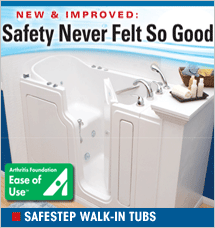Dollar Sense
The Downside of Assisted Living: What You Need to Know

Assisted living facilities can be wonderful places to live, for many seniors. They are showing up everywhere because the senior population is growing rapidly. For people who don’t want to live completely alone but don’t need a lot of help, assisted living facilities (ALFs) are a good alternative. They provide a great deal of independence at a price that is much more affordable than a nursing home. Still, like all things in life, there are drawbacks you need to consider.
None of us knows what tomorrow will bring. But while an ALF might be perfect for you today, if you are aware of health conditions that are rapidly changing, moving into an ALF might not be the right choice for you. Brian Lee, the executive director of Families for Better Care said “assisted living facilities may be more dangerous than nursing homes,” mainly because the staff are not always trained for higher levels of care. Before you make your decision, ask these questions when shopping for a care facility for yourself or a loved one.
- What conditions or behaviors will result in you being evicted? And, who makes the decision that a resident must go?
The contract you will be asked to sign should spell out this information, but don’t expect anyone to draw your attention to it. Ideally your physician would be the one who decides if you need to move to a higher level of care, but this may not be the case. Someone at the ALF may decide you have to go elsewhere, and if you disagree you may have no option but to go to court.
Behavior is a whole different ball game. Your health could be reasonably good but, for example, if you are a natural flirt and that bothers other residents, is that grounds for eviction? Ask.
- What services would result in extra charges?
Keep in mind, the advertised price for an ALF is generally the price for a relatively healthy, independent person, not the broken hip or dementia sufferer. Most ALFs charge extra for additional services. If you come down with a cold and request to have meals brought to you, will you get a bill? What if you can’t read your medication and need assistance to know how to take it? Extras can add up fast, and on a fixed income that can be disastrous. Ask!
- What is the policy on rate increases?
Like most businesses, ALFs have been hit hard by the recession. Many ALFs have a growing rate of vacancies, and yet new ALFs are under construction everywhere. Competition can be a good thing. But to fill beds, some facilities hire marketing firms that give you the hard sell, promise the world, and gloss over problems. That’s why you need details and the toughness to negotiate. Ask for discounts on community fees, or on the first few months’ rent. Or ask for a clause in your contract that will bar price increases for a few years. Don’t be afraid to negotiate.
- Does the ALF have a floor for residents who are diagnosed with dementia?
If so, and you suspect you will need this type of care in the future, this gives rise to more question.
- There is not much government regulation for dementia care. Is the staff at the ALF you are looking at properly trained for care of dementia patients?
- Ask about the security that is in place to keep dementia patients from wandering away.
- Are there activities which are truly appropriate for dementia patients?
- Also ask about the adequacy of the staff to patient ratio. Most ALFs are for-profit. In recent years, their profit margins have increased, largely due to decreased staff levels. That can translate to deficient care, falls, infections, weight loss, even bedsores.
- If you are a private payer, ask what would happen if you ran out of money.What is the policy on accepting Medicaid, should this become necessary?
Some ALFs will require that you move.
- Ask to see the ratings of any ALF you are considering.
They are rarely subject to state inspections. Even in California, a state where regulation seems to bulge out of every nook and cranny, ALFs are only inspected every five years, and the results are not posted online. The ALF should have a record of fines and violations which you can look at, according to the National Center for Assisted Living. Just be aware, the records are somewhat sanitized. Nursing homes, on the other hand, must have greater transparency.
Referral Services
You should know, many referral services are free to consumers, because they are getting finder’s fees from the ALFs. Unfortunately, unscrupulous referral services will only recommend those facilities that pay them for the recommendations. This is sometimes true even after the ALF has proven to provide substandard service because there is nothing to stop the referral services, short of a legal action.
On the other hand, referral services that you pay for, tend to act in your best interest, even after you have been placed. They generally look for the best fit for you, based on a health assessment and care plan, and will help search out financing options.
Before you decide, go eat a few meals there. Visit when you are not expected. Talk to staff members, to residents and to their families. Ask if they had to do it again, would they still choose this facility?
Living in an ALF may turn out to be a wonderful experience. Just take the time to ask the right questions and choose carefully. The quality of your life depends on it.
Teresa Ambord is a former accountant and Enrolled Agent with the IRS. Now she writes full time from her home, mostly for business, and about family when the inspiration strikes.




























































